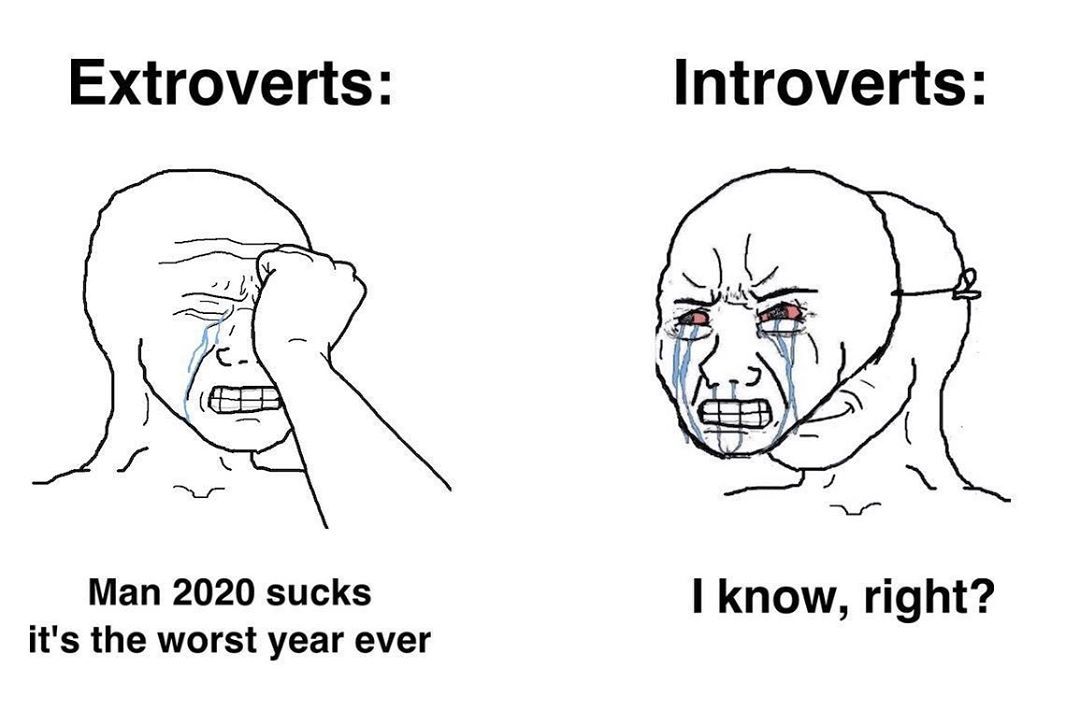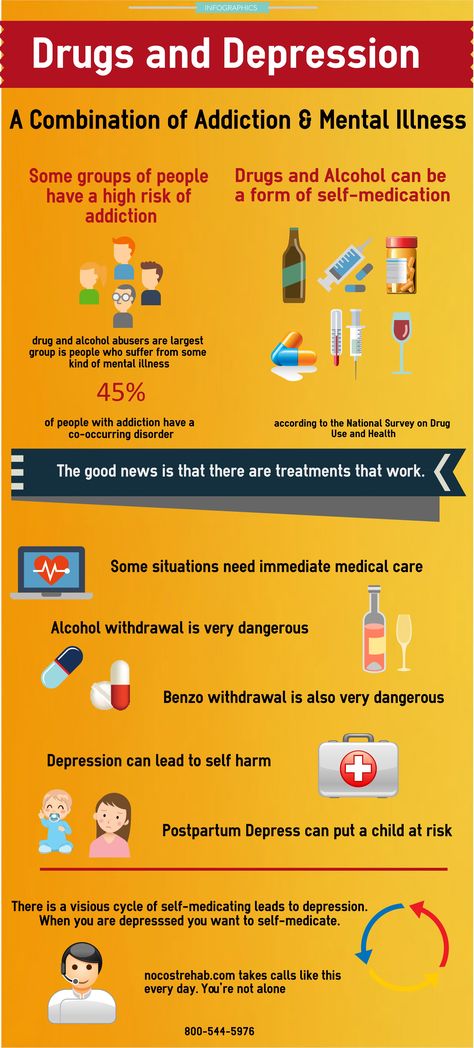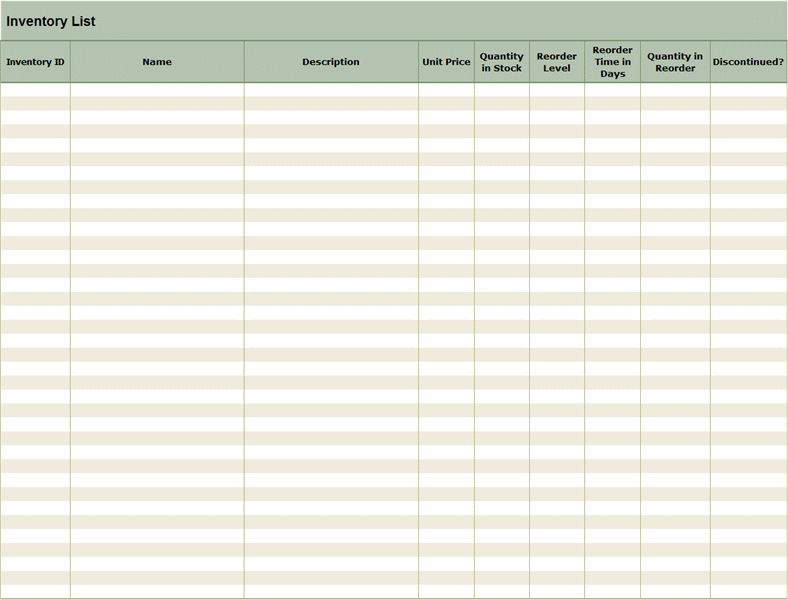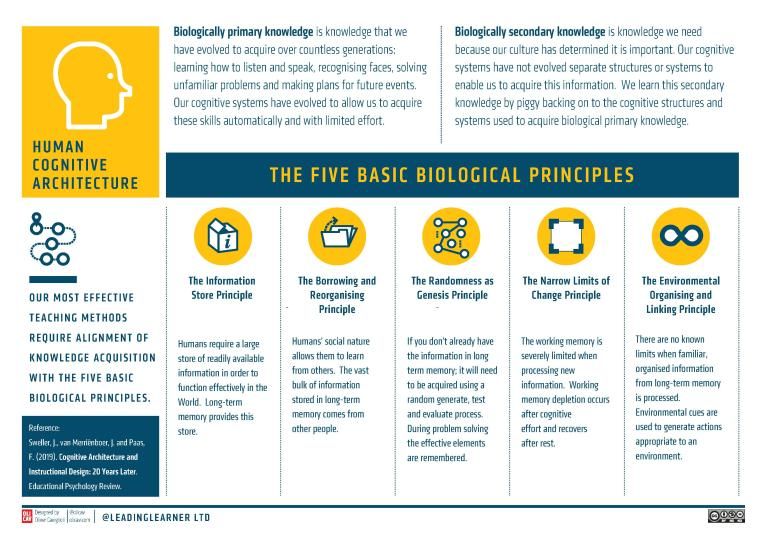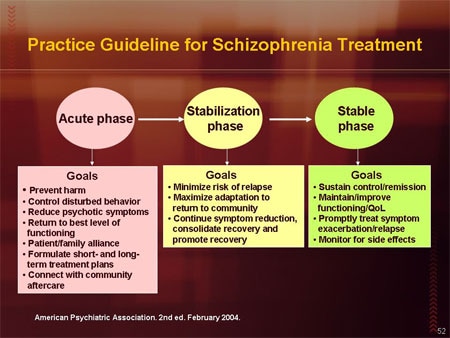Natural consequence for lying
How to positively respond to a child's defiance and lying
Our family believes in natural and logical consequences. We also strive for positive guidance through tough situations. But when a child becomes defiant or lies, natural consequences feel a little less “black and white” and a lot more confusing both for parent and child. It’s easy to feel like we’re grasping at straws to find a logical outcome instead of an illogical punishment. So how do we work to find an approach to appropriately teach our children appropriate and respectful behavior in these instances?
What’s the difference between consequences and punishment?
We first have to talk about what exactly consequences are in order to understand how to enforce them. We also have to understand how a child’s brain works.
From birth, babies learn patterns and recognize outcomes (1). They learn before the age of one to cry to get a parent to come in the room and they see patterns both in their physical world and even relationships between people and things. By around 26 weeks (or 6 months old), babies can understand the relationship between an action and a sound (2). However, in the preschool years and even through early childhood, kids sometimes fail to fully understand the process of cause and effect; therefore we must guide them through it (3) (4).
Consequences are, very simply, the result of any action or behavior regardless of appropriate or not. They are the direct result of an action. Punishments are a negative reaction to a situation.
For a child to understand that every action they make has an outcome, good or bad, means they’re learning discipline and character to acknowledge and follow through with the repercussions of their decisions. This is what make consequences important and also superior to punishments. [color-box]
Consequences vs. punishments example
If a child studies hard and gets a good grade on a test, the consequence of studying is getting high marks to prove it. If the same student does not study on the next test and performs poorly, they suffer the negative consequence. And if that child goes home and his/her parent takes away TV for 3 weeks because of the bad grade, they are experiencing a punishment.
And if that child goes home and his/her parent takes away TV for 3 weeks because of the bad grade, they are experiencing a punishment.
Punishment typically uses shame for a behavior modification, not loving guidance to learn from their actions.[/color-box]
Consequences can guide a child towards a desired behavior, whereas punishments can leave them confused and/or fearful because it typically isn’t a logical outcome. Have you ever heard of a child giving up because they know they’ll just get in trouble? That’s typically the result of punishments and a disconnect in understanding how to modify their own behavior.
But what’s the difference between natural consequences and logical consequences?
Understanding Natural vs. Logical Consequences and Positive Guidance
Natural consequences just kind of happen. No one needs to intervene or step in to make them a reality. So back to the example of studying… a child is going to get a grade whether they study or not.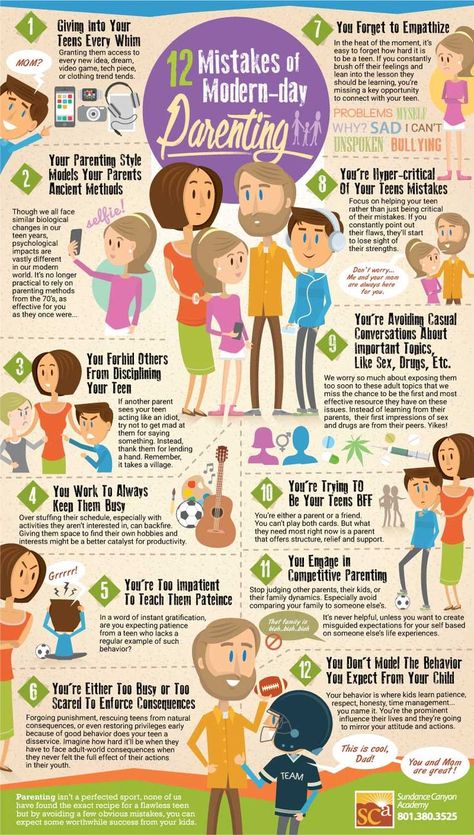 And while as parents, we can discuss what our kids learn from the experience, they’re going to feel the effects regardless. That’s a natural consequence.
And while as parents, we can discuss what our kids learn from the experience, they’re going to feel the effects regardless. That’s a natural consequence.
Related: Can kids effectively be a part of their own discipline?
However, a situation that requires guidance through cause and effect where the adult sees the event and then institutes an effect is a logical consequence. Hitting typically doesn’t have a natural consequence beyond their friend being sad. So two of many logical consequences would be that a child loses the privilege of using their hands or they do not get to spend time next to their friend.
Sometimes a consequence is 100% appropriate. However, there’s also a point when as parents we can move from punishment, to consequences, to positive guidance.
This is because consequences can still send a punitive message to kids when in reality they’re seeking, desiring, and needing guidance. At which point as parents we have to walk alongside our kids to help them understand how to navigate tricky and difficult situations.
Related: The best 5 logical outcomes for hitting with a positive parenting approach
Positive Solutions to tough behaviors
How to handle defiance with logical consequences and positive guidance.
Defiance almost always is the result of some other underlying issue. It’s a way kids can lash out from their bubbling, churning emotions on the inside:
Feel out of control? Use defiance to try to exert control.
Feel overwhelmed by what’s been asked? Act out of anxiety and defy what’s expected.
Think a rule is stupid? Just ignore it, maybe it will go away.
Don’t understand why it’s being asked? Do something else that makes more sense to me.
It’s different from standing their ground. In fact, we should encourage our children to hold tight to their convictions and be willing to have open, honest discussions with them to know when they believe strongly in something.
A deep underlying issue in true defiance is respect.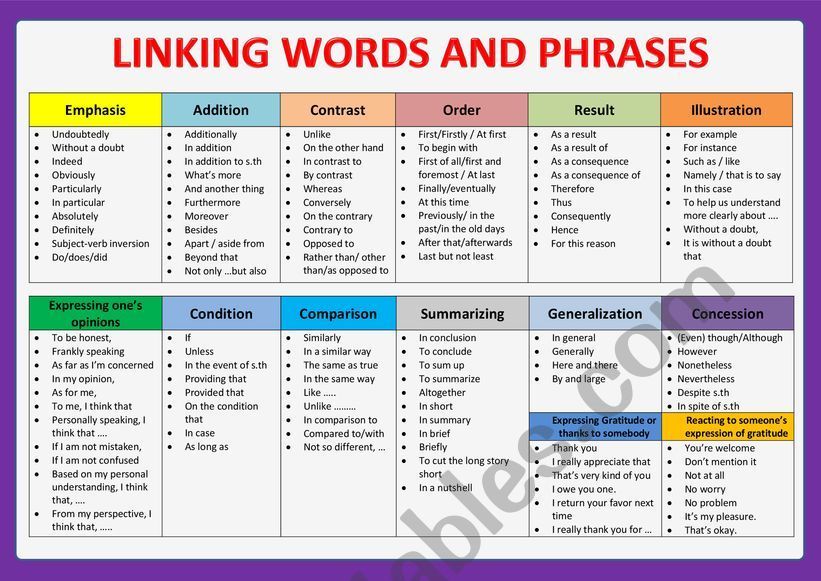 Respecting you as the parent enough to do what you say and know that it is the right thing, the most logical thing, the most important thing they should do… That you have their absolute best interest in mind. So we have to prove that to them first and foremost.
Respecting you as the parent enough to do what you say and know that it is the right thing, the most logical thing, the most important thing they should do… That you have their absolute best interest in mind. So we have to prove that to them first and foremost.
[color-box] Logical Consequence: This always seems tricky because if a child is defiant, they’re probably going to defy the consequence too. However the logical outcome many times is to do it alongside them. It fills the need for kids to lear =n to better trust, it feels the need for connection, and it also helps clarify the situation.
If they cannot do what they are asked, they lose the freedom to operate independently (even though it’s not likely to be convenient on the parent either).
Positive Guidance and Alternative responses: Sometimes defiance come from a lack of understanding, so offering effective instruction or giving two choices can guide a child to do the task independently. [/color-box]
[/color-box]
Related: Teaching Toddlers Consequences for their Choices
What can a parent do to discourage lying?
If you’re thinking “My kid is a defiant liar. What do I do?” then you’re not alone. There are two important approaches to understanding why a child lies and how to handle it. First, look at the intention of the action rather than the lie and then confront the situation head on.
So if a child wants to do something like use an item they’re not supposed to offer an introductory acknowledgment that we saw them and then offer an appropriate time and place to use the item or do the activity. This prevents them from having the opportunity to fib.
When a parent know their child is going to lie that they were not doing something or that is not their fault, etc. is to open up conversation differently from the beginning.
How to prevent kids from outright lying
“I noticed you were using ____. Is there a time you would like to sit down with me to play with it?”
“I know that you like drawing, but can we find a more appropriate place to color?”
“If you want to ____, can we talk about it?”
“Can you tell me why you were ____?” (Sometimes is followed by “I wasn’t” to which “Then please explain what you were doing” is an appropriate response. )
)
“If you would like to ____, I would happy to find you a better way to do that.”
Grab your free “parents’ guide to behaviors” download.
Click Here.
Lying is also a developmental marker. For toddlers, they sometimes lie without understanding. Preschoolers and young kids lie to self-preserve because they know they did something wrong. Around the ages of 7-9, kids learn developmentally that they can lie to manipulate a situation or outcome.
[color-box] Natural and logical Consequences for lying: What stems naturally from a child lying is that it erodes trust between parent and child. Therefore, this can be easily explained to a child. To extend it further, a logical consequence would be removing freedoms that could erode trust further.
For instance our daughter started sneaking donuts at church when she walked downstairs. The natural consequence is that we didn’t trust her to walk alone anymore. But the logical consequence would be to not actually allow her to walk alone for a set amount of time.
Positive Guidance: Explain how you understand that lying is a way to try to get out of trouble, but that it creates distrust and tension in friendships and family. Help them understand it’s ok to make a mistake, but we have to learn from the mistakes. Offer to remind your child when you notice them heading on a path that might not be where they need to go. [/color-box]
Related: The simplest ways to make the best of the defiant child years
How do I handle a child that pretends to not know how to do something?
As an offshoot and subset of lying, this is another tricky situation. Sometimes in development, kids have regressions. So they legitimately may not remember where something goes or might struggle doing something they once thought was easy. So first, we might assess a child as a whole and might see that they could feel like they don’t know how to do it.
Regardless we can encourage them and try to motivate them to try.
[color-box] Logical Consequence: If they cannot do something you ask or pretend they can’t, then it’s time to practice! Set a time frame that your child can work on that skill, task, or chore.
Positive Guidance: Get down beside them and help, explaining that sometimes things are difficult, but that “we’re a family that helps each other” and that’s something they can always know and count on. Help them understand that they don’t ever have to pretend.[/color-box]
Related: Encouraging my child through the “I can’t” stages
Get more help with Positive Guidance for Tough Behaviors
Want a printable cheat sheet to help have more of a positive parenting approach to responding to negative behaviors? Simply click on the preview image below for a pop-up to get a high-resolution download.
Kara Carrero
Kara is an author and advocate for positive, grace-filled parenting. She is homeschooler to her 4 children living on a farm in New England. She believes in creative educational approaches to help kids dive deeper into a rich learning experience and has her degree in Secondary Education & Adolescent Childhood Development. She is passionate about connecting with and helping other parents on their journey to raise awesome kids!
Kids Lying? 20 Tips and Consequences to Get Children to Stop Lying
If you’re a parent, there’s a very high degree of probability that you’re going to catch your kids lying at some point in their lives.
Whether your child is telling an outlandish story about something that happened in preschool, or telling you a direct lie to avoid being punished, rest assured that lying is a normal part of childhood development and not something you need to beat yourself up over. The trick is to figure out the reason behind your child’s lies so you can proactively find ways to change his or her behavior.
Keep reading for 20 tips and consequences to get your children to stop lying to you once and for all!
Why Do Kids Lie?
While it can be pretty off-putting the first time you catch your kids lying, it’s important to remember that your child is most likely exhibiting normal childhood behavior, and that it probably has nothing to do with you and your parenting style. That being said, if you notice your child is lying more often than you feel comfortable with, it’s always a good idea to dig deeper and try to figure out WHY the behavior is occurring so you can determine if you need to intervene.
Here are 5 different reasons your child may be lying to you:
Telling tales. When younger children lie, it’s usually pretty obvious and outlandish. A child may blur the lines between reality and fiction in an attempt to bring their imaginary worlds to life, and while it may seem troublesome to a parent, it’s usually nothing to worry about. Take the time to listen to the stories your child tells, gently remind him/her which parts are fantasy, and look for any underlying themes that may be of interest. Your child may be using his/her imagination to try and work through life changes (new baby, new home, starting school, divorce of parents, death of a relative, etc.), and you can use this as an opportunity to open up the lines of communication between you and your child.
Avoiding punishment. Lying to avoid getting into trouble is extremely common in kids, and we discuss strategies to help avoid this kind of behavior below.
Saving face. Sometimes kids lie because they don’t want to upset you, or to help them look good in front of their peers and/or authority figures. This is especially common in children who struggle with low self-esteem.
Avoiding unpleasant discussions. Your child may be lying as a way to avoid engaging in a discussion with you about something stressful or difficult to him or her, and your reaction can perpetuate the cycle rather than solve the situation. Instead of focusing on the fact that your child is lying, pay close attention to what those lies are trying to tell you about your child and what he/she might be struggling with.
Impulsivity. There’s a lot of literature online about the relationship between ADHD and lying, which goes above and beyond the scope of this post, but I still wanted to mention it. Whether your child has an official ADHD diagnosis, or simply has a tendency towards impulsive behavior, he or she may be lying as a way to cover up his or her impulsivity and/or inability to complete certain tasks. These children are subjected to a lot of negative feedback throughout the day, and will do anything to cover up their mistakes to avoid further punishment for things beyond their control.
9 Tips to Get Your Child to Stop Lying
Don’t react. When you catch your kids lying, your initial instinct will probably be to reprimand them in an attempt to avoid the situation from occurring again. And while this may be an effective approach with some children, it isn’t always the best option. A much better strategy is to take a deep breath and evaluate the kind of lie your child told before you determine the best reaction. You may opt to ignore the lie and redirect your child if the lie was small, or you may decide you need to dig deeper into the root cause, in which case you may table it for another time.
Remain calm. Whether you are addressing your child’s lying in the moment, or discussing it at a later time, it’s important to stay calm. If you react negatively by shouting at your child, telling him or her how disappointed you feel, etc., your child may engage in similar behavior in the future to avoid the same kind of reaction out of you. While you want to encourage honesty, you want your child to feel safe telling you when he or she has made a mistake.
Dig deep. Have you ever heard of The Iceberg Model? It’s quite fascinating. According to this theory, the poor behaviors we see in our children are only the ‘tip’ of a much bigger iceberg. And since only about 10% of an iceberg is visible to the naked eye, it is theorized that the drivers of our child’s behaviors live beneath the surface, and that we must find a way to see and understand these drivers before change can occur. Your child may be lying to avoid disappointing you, to boost his or her self-esteem, to protect someone else, etc. Take the time to listen to what your child isn’t telling you.
Establish clear and consistent ground rules. If you want to get your child to stop lying, you need to establish a set of house rules in which you clearly define the rules by which you wish your home to be governed. Spend some time brainstorming the behaviors your child struggles with most (lying), and then put together a list of rules you expect him or her to abide by each day. Keep the list somewhere visible to your child and revisit it together often. If you find your child struggling to follow the house rules you’ve set forth, consider turning it into a reward chart whereby your child earns a small reward for successfully following a certain number of rules each day (i.e. if your child earns 4 of 6 check marks, he or she gets an additional 15 minutes on his or her iPad after school).
Be a good role model. I think this goes without saying, but if you want your children to be honest, it’s important that you engage in the same behaviors yourself. This can be particularly tricky when it comes to white lies as the lines are a bit blurry as to when these kinds of untruths are acceptable. My best advice is to avoid telling any lies and fibs in front of your children, and to take the time to discuss and explain if and when you need to cross the line (i.e. to protect someone else’s feelings).
Talk it through. Whether you suspect your child is being dishonest, or he or she has admitted to telling you a lie, make sure to keep the lines of communication open. Discuss what happened, work together to brainstorm ways you will each handle the situation differently next time, and be careful to keep the dialogue light and positive so your little one feels comfortable and secure in coming to you the next time he or she makes a mistake. Remember that trust is a two-way street!
Avoid trying to catch your child in a lie. Instead of deliberately trying to catch your child in a lie and inflaming the situation, choose a different approach. For example, if you asked your child to clean his or her room before dinner and you know this hasn’t happened, consider going up to your child’s room and framing the conversation in a positive way. You might say something like, ‘Hey, I just wanted to come up and tell you that dinner will be ready in 30 minutes and ask you what your plan is to get your room picked up beforehand like I asked? Is there anything I can do to help you get started?’ The idea is not to draw attention to the fact that your request hasn’t been completed, or to nag, but rather to remind and offer help.
Praise truthful behavior. Reinforcement is a fabulous technique to use to encourage the kind of behaviors we want to see in our children. And while both positive and negative forms of reinforcement can help teach children self-control, research tends to suggest that positive reinforcement – the act of rewarding a child when he or she completes a desired behavior as a means of increasing the likelihood he or she will repeat the behavior again – is the most effective. Make sure to offer your child praise when he or she tells the truth, especially when it’s difficult for him or her to do. And if you are really struggling with lying kids in your household, a sticker chart may help curb the behavior! We talk more about reward charts HERE.
Provide a second chance. If your child tells you something you know for certain is a lie, try giving him or her a second chance to come clean. Say something like, ‘Hmmmmm. I’m not sure that’s entirely accurate. I’m going to give you a few minutes to rethink what you told me and then we’ll talk again.’ Keep your emotions out of the conversation and remember to offer positive praise if your child is successful in telling you the truth the second time to reinforce the idea that truthful behavior leads to positive interactions.
How to Use Consequences for Lying Kids
Learn how to use consequences properly. Unlike punishment, which is aimed at making a child suffer in retaliation for inappropriate behavior, consequences offer an opportunity for children to learn from their mistakes. When used properly, consequences can teach children responsibility, accountability, and problem-solving, but not all parents and caregivers use this approach effectively. Here are a few Dos and Don’ts about implementing consequences for bad behaviors such as lying:
Don’t…
- Criticize. Remember that the goal behind using consequences is to provide an opportunity for your child to learn from their mistakes, not lower their self-esteem.
- Blow things out of proportion. As tempting as it may be to remove privileges and ground your child when you catch him or her in a lie, take a deep breath and think before you act.
- Delay consequences. In order for consequences to be effective, they need to be implemented immediately after the undesirable behavior occurred.
Do…
- Ignore bad behavior. If your child is engaging in undesirable behavior that isn’t dangerous or harmful to himself or others, ignore it.
Do not engage him or her and avoid eye contact until he or she stops the behavior in favor of something more acceptable, at which time you should offer praise and positive interaction.
- Use praise and rewards. Taking the time to point out and praise or reward your child when he or she behaves appropriately not only boosts his or her self-esteem, but it also teaches him or her what your expectations are and makes him or her more motivated to seek out desirable instead of undesirable behaviors.
- Be consistent and follow through. In order for consequences to work, you must resist the urge to intervene and always follow through!
Make sure the consequence is relevant. While consequences can be extremely effective in warding off undesirable behaviors like lying, most parents don’t know how to use them effectively. They either don’t implement them soon enough, the consequence doesn’t match up to the behavior, or the parent uses the consequence as a way to shame the child. A much better option is to use natural and logical consequences.
Natural consequences are those that occur inevitably as a result of a child’s behaviors or actions (i.e. if a child refuses to eat, she’ll feel hungry), while logical consequences are designed to help children replace poor behaviors with more appropriate ones (i.e. if a child fails a test, he or she is required to spend more time studying). Natural consequences tend to be more effective, but since they don’t always occur as a result of poor behaviors, logical consequences are an excellent positive parenting technique to use to get kids to stop lying.
For example, if you find your child playing on his or her iPad when he or she should be doing homework, and your child proceeds to lie and say his or her homework is done when you know for certain it isn’t, a good logical consequence would be to remove the iPad for the remainder of the day as the privilege was abused.
We’ve written a whole post about natural and logical consequences along with some great ideas to help inspire you, which you can read here.
Provide a choice. If you catch your child in a lie and want a way to encourage him or her to come clean in an attempt to demonstrate the importance of owning up to our mistakes, consider offering a choice. For example, if your child lied about doing his or her homework in favor of playing on his or her iPad, you can present 2 options:
‘I’m not entirely sure you completed your homework. I’m going to leave you alone for 3 minutes, and when I come back I’m going to ask you again. If the answer is still ‘yes’ and I discover you are lying to me, you will lose your iPad for the rest of the day. If you decide your answer is ‘no’ and take the time to complete your home like I asked, you can have your iPad back after dinner.’
This option allows you to follow through with your house rules while simultaneously showing your child that when we admit to our mistakes, the consequences are much lower.
Enforce apologies. Another one of my favorite consequences for kids comes in the form of an apology. This obviously only works if the lie had a direct impact on someone else, but I love the idea of teaching our children the art of apologizing when they are in the wrong. Whether you ask your child to write an apology letter, or provide a verbal apology, the exercise will likely be tedious and uncomfortable, but if you approach it properly, it will have a long-lasting, meaningful impact.
Use a reward chart. While I’m a big believer in the power of good behavior charts, I’m not especially fond of rewarding children for being truthful. With that said, desperate times call for desperate measures, and if you find your little one lying more often than you care to admit, a reward chart may be just what you need to curb his or her problematic behavior. We talk more about reward charts, how to implement them, and our favorite free and paid templates HERE.
Ask your child to choose a consequence. If you’re at your wits end and can’t figure out how to get your child to stop lying, challenge him or her to choose a consequence they feel will be motivating. You may be surprised at what your child comes up with, and it may be the motivator you were looking for!
I hope these tips and strategies help you understand why kids lie, and inspire you to find ways to replace poor behaviors with good ones. Remember to dig deep, establish clear and concise rules and expectations, use positive versus negative reinforcement, be a good role model, use consequences instead of punishment, and remember that respect is a two-way street!
If you found these ideas related to kids lying at home or at school helpful, please share this post on Pinterest!
And if you’re looking for more parenting tips and tricks, please follow our Parenting board where we share all kinds of great ideas we find each day!
8.2K shares
- Share
- Tweet
Gender aspects of lies as a social phenomenon
All people lie regardless of age, gender, beliefs, social status, etc. Lies are an integral part of human existence, its social interaction. Every day we deceive, keep silent or distort the facts, intentionally or unconsciously, choose information that is or is not worth the attention of the object of our communication. Depending on the goals of deception, we choose a strategy for behavior and interpretation of what we want to convey; depending on the object, we can deceive both the people around us and ourselves; depending on the controllability of the process, a lie can be conscious or unconscious; depending on the intentions, a lie can be virtuous or not, and so on. But all this will be a lie that accompanies us as an attribute of human consciousness and the process of communication. The relevance of this issue will never exhaust itself - a priori, a person cannot stop lying, even if he allows his maximum efforts to do so. The authors of the article are not aimed at developing an evaluative attitude towards lies and the ethics of its application. This work is aimed at studying lies as a natural mechanism of human communication, and in a narrower sense: the gender aspects of lies.
nine0003
Let us note, however, that humanity knows one period in its history where lies did not play the global role that they have now. This refers to the era of primitive. Now it is difficult to say what prompted a person to start lying. Obviously, much here is hidden in the very dialectic of reason, but we are primarily interested in the question of the social meaning of lies. In the primitive community, according to well-known anthropological data, lies as a means of communication played an extremely small role. On the contrary, it was considered shameful and seriously condemned. A completely different situation develops in the period of civilization, namely, the established state and private property. The lie becomes the main mechanism of social interaction, although a general dislike for it is declared. Obviously, all modern morphemes and characteristics of lies were laid down in the period of a civilized society, which fully applies to the gender differences of this phenomenon. nine0003
The product and at the same time the catalyst of social interaction is a lie aimed at two, according to the authors, the most important solutions to problems for an individual who is within the framework of social relations: firstly, a person develops a mechanism for managing and controlling the communication process; secondly, a person acquires the opportunity not to be himself, which can manifest itself, for example, in a sliding image. Thus, the subject satisfies his need to want to be the way he wants to be perceived by others. In the process of historical development and the complication of the structure of society, with experience, the skill of using lies has also developed for the sake of subjective needs. As we grow older, the human brain progresses in the ability to lie and deceive. If, for example, a child in preschool and early school age tries to deceive someone from his environment, then non-verbal mechanisms will give out the true thoughts of the deceiver: covering his mouth with his hand, closing his ears, eyes, etc. In adolescence, with the development and complication of the organism as a whole and with the acquired and more extensive experience of social interactions, in the process of further socialization, the individual copes with the task of deceiving someone or hiding something more qualitatively. In adult life, due to the intensity of frequently occurring communications, the subject continues to learn deception and, as a result, forms his behavior and strategy when communicating with the object to whom he lies. I would like to note that the body will in any case show us whether the person with whom we are communicating is lying: microexpressions, the position of the body in relation to space, gestures, the position of the arms and legs, the position of the interlocutor's personal objects, the movement of the pupil, breathing.[1 ] All this and much more betrays a liar if you train in the skill of lie verification. But, it is worth noting that it is impossible to control the unconscious mechanisms that occur in the process of lying, it is only possible to hide the signs that appear.
An example of such behavior can be, for example, hiding emotions of anger or sadness behind a smile.[2] It should also be noted that the skills of each subject in the ability to lie are individual and developed to varying degrees, and the improvement of the quality of a lie, the technique of hiding its non-verbal manifestations, depending on age, is influenced by factors of the intensity of socialization and the density of interaction with society. nine0003
No dominant gender was found in the process of lying, women do not lie more than men, and vice versa if we consider the problem on a global scale. But, as for the direction of this lie, the behavioral characteristics in the process of deception and the emotional and psychological perception by the liar himself of what he is doing, and the sensations and feelings of the object, which knows that he is being lied to, are different for men and women. A woman in the process of lying is focused on distorting feelings and thoughts related to the subject of a lie, while male representatives, on the contrary, lie, distorting facts, not paying much attention to describing their sensory perception, etc. For female representatives, lies are directed outwards, quite often women deceive in order to present themselves in a good light, not to lose face in front of others, or, as already mentioned, to hide their true emotions and feelings. In men, lies are self-centered, and aimed at distorting the fact in order to hide the true motives of actions. The experiences of the sexes when exposing the lies of their interlocutor also differ. A woman is indignant about the concealment of true feelings by the interlocutor, distrust of her, unwillingness to express her true thoughts and express emotions, they are no longer worried because of the distortion of someone's fact, but the distortion of real feelings and emotions. Men define the essence of untruth, lies and deceit through knowledge, rational understanding of their typical features, as well as the harm they cause in communication. Therefore, the decision whether to lie or not is made by them taking into account a number of points: the person who needs to be misled, the benefits from this, the likelihood of exposure, etc.
A knowledge-based understanding of the situation, as it were, protects them from the need for strong emotional experiences in case of lies and deceit.[2] nine0003
Before revealing the essence of the issue in a broader sense and further, it is worth explaining that lies have many varieties and forms:
According to the authors, alienation and lies are interrelated and form an inseparable dyad, where the former gives rise to the latter. Alienation should be understood not only from the point of view of K. Marx, where he considers the alienation of a person from the results of his work, but in a broader sense: as a person's alienation from the world, from himself. Erich Fromm in his work “Man is lonely” considers the phenomenon of alienation as follows: “By alienation I understand this type of life experience when a person becomes a stranger to himself. He seems to be "pulled away", separated from himself. He ceases to be the center of his own world, the master of his actions; on the contrary, these actions and their consequences subjugate him, he obeys them and sometimes even turns them into a kind of cult.”[4] In connection with distancing from oneself and from the world, a person uses a lie as a tool to help hide his true state and not show the society his inconsistency and low viability in the process of interacting with the subjects of society. Which, in turn, gives rise to the reverse process: the more often a person lies and the more often they expose him or understand that he is a liar, the stronger his alienation from the environment communicating with him and, as a result, from the whole society as a whole, for example, based on judgments about a small group. J.P. Sartre understood the modern individual as an alienated being, with a standardized individuality, enclosed in a social framework, subject to various social institutions.
[5] Based on this, it can be assumed that the individual seeks to protect himself from the obsessive pressure from society, pressure on the individual, by means of a lie. Here it acts as one of the mechanisms of self-preservation of the individual as an integral structure, takes a defensive or aggressive position in relation to society, and at the same time gives rise to a feedback, which was mentioned earlier: an individual, taking a position of defense, is further removed from the existing world. It is worth noting that we have now considered the ideal situation when a lie becomes paramount for a person and he cannot help but lie even unnecessarily, and when there is a critical degree of alienation. But in reality, the probability of the existence of such an individual is extremely small, therefore, if this is not observed, then the degree of lies and alienation, as well as their dependence on each other, will vary, based on the parameters of the first and second, the subject will be a liar and alienated to varying degrees.
nine0003
In conclusion, I would like to emphasize that the gender characteristics of lies are undoubtedly the key to understanding the mechanisms of lies in general. As a unit, as a link in general scientific knowledge, a detailed study of the gender aspects of lies will allow us to come closer to the truth, to the core of the problem. The attribute of modern man and society is alienation and lies, and this can hardly be changed, but science, including sociology, is called upon to find true knowledge, identify dependence, find possible solutions, understand the mechanisms of the functioning of lies, and in the future come even closer to understanding lies. , as the basis of pseudo-communication. nine0011
Where is the lie, where is the truth? The vast majority of people cannot distinguish between cause and effect December 2022, 17:37
August 12, 2021, 11:32
The current situation in Russia has developed largely due to the fact that 80% of its citizens do not have full-fledged conceptual thinking. nine0003
Plot
Power and people
A few years ago, the Internet publication Rosbalt published an interview with a sociopsychologist Lyudmila Yasyukova , in which she argued that the gap between smart and stupid in society is only growing. Among other things, the expert made the following, largely shocking statement:
“According to my data and according to other researchers, less than 20% of people have a full-fledged conceptual thinking. These are those who studied the natural and technical sciences, learned the operations of highlighting essential features, categorization and establishing cause-and-effect relationships. However, they are few among those who make decisions about the development of society. Among our political consultants are psychologists, philosophers, failed teachers – people who are not very good with conceptual thinking, but who can speak deftly and wrap their ideas in beautiful wrappers . .. "
This thesis was remembered by network analyst in his publication Dmitry Milin in connection with the situation in modern Russia:
"Once I read an article by a teacher who wrote that 80% of people are not able to understand causal relationships. On the one hand, this was a shock for me, because I, like many others, consider all people equal to myself.On the other hand, it explained the unpleasant fact for me that it is impossible in principle to explain the simplest cause-and-effect relationships to many people.0003
Until now, many people believe that it was Yeltsin and Gaidar who destroyed the economy of the USSR, and nothing more than a ten-year Brezhnev "stagnation", when the country was led by the 19 millionth CPSU with the Politburo, the Central Committee. congresses and the all-powerful KGB. And that it was under Yeltsin and Gaidar that the "brothers" of the 1990s were born and raised, and were not taught by the Soviet school and trained in violence by the Soviet Army.
These same people believe that illiteracy in Russia was eliminated by the Bolsheviks immediately after the revolution, and not by the colossal investments of the tsars in public education. nine0003
These same people believe that the USSR defeated Nazi Germany alone, without the help of allies and Lend-Lease. They believe that the Allies entered the war only in 1944, landing in Normandy.
Slightly expanded my set of telegram channels at the expense of the pro-government part and found that quite sane channels (probably for money, but still) quote and discuss with the Forty Sorokov telegram channel with absolutely frostbitten, alternatively gifted people to the point of idiocy, who consider what is happening a consequence of the struggle between the Rothschilds and the Rockefellers. nine0003
Nikita Mikhalkov's nonsense about "liquid chips" from Bill Gates was watched by more than 2.7 million Russians.
In the same way, many people (including my classmates, even those who can hardly be called stupid) cite nonsense about the harm of 5G and believe that "5G towers" allegedly "created the coronavirus" and "burn out oxygen from lungs".
Unfortunately, this is the world we live in. We communicate with people whose heads are full of unscientific nonsense and stained with false propaganda, which (together with the authorities) itself has long been confused about where is the truth and where is the lie…”
Numerous comments on this publication included more optimistic remarks, such as, for example, publicist Yegor Sedov :
“I don't know how many people believe. I recently observed such a scene: the road from the resort is crowded, a father and son are walking. The son is probably 10-12 years old, the father is, well, typically "deep people". And so he explains to the child: "Not in 1941, but in 1939, in September ... And all this is called the Second World War ..." It's a pity they turned off - I have no doubt that there was more about the pact. The case when observation is better than all opinion polls. And someone with educational activities wanted to do something, well, well . .. "
And blogger Vitaliy Borodavchenko rightly believes that the other side of this process is religion:
sides of the same coin.
It is very difficult (and often impossible) for a person who believes in something to explain anything, especially in words. Even illustrative examples (of the material world) they treat with wary distrust. nine0003
So, for example, for some there is nothing left but to attribute (people) "who believe economic prosperity is a consequence of democracy and political freedoms to 80% who are not able to understand the cause-and-effect relationships." And many, including Putin, believe that: "Liberalism has outlived itself!" - although it was he who contributed to the industrial revolution, the development of capitalism and transformed the world over the past two centuries.
Countries that are in captivity of authoritarian rulers, in which there is no freedom (and cannot be!), parasitize on technologies created in the free world.
